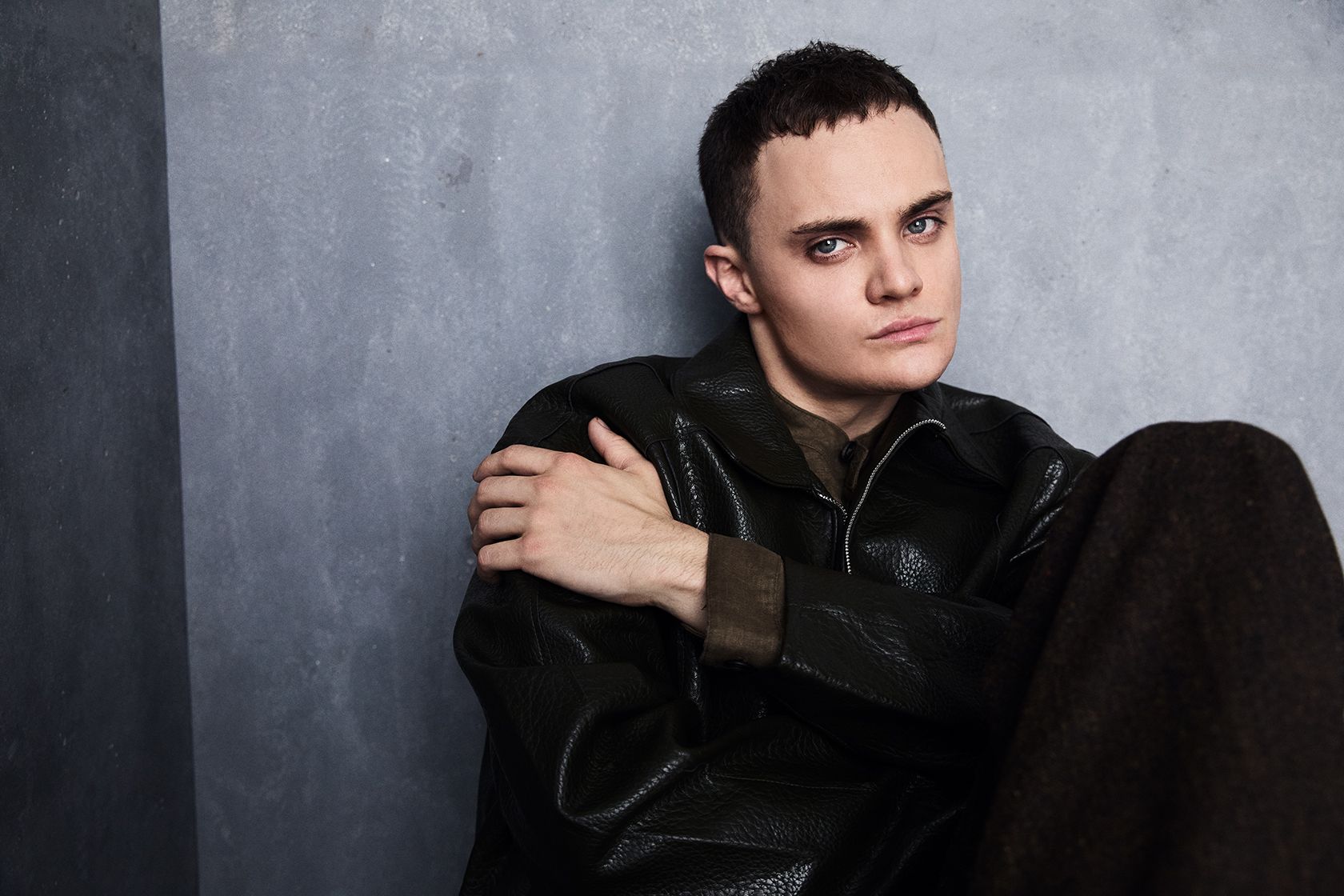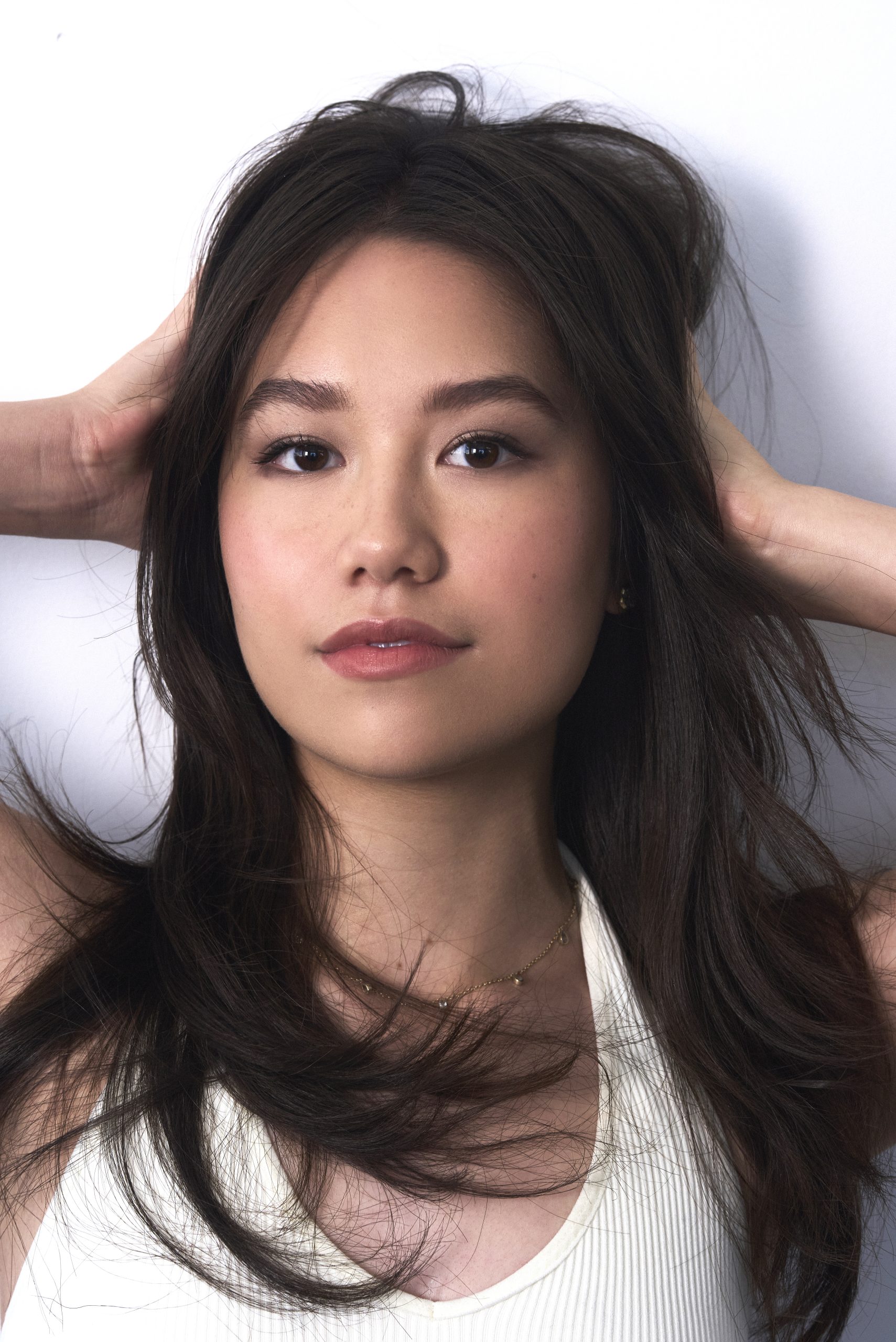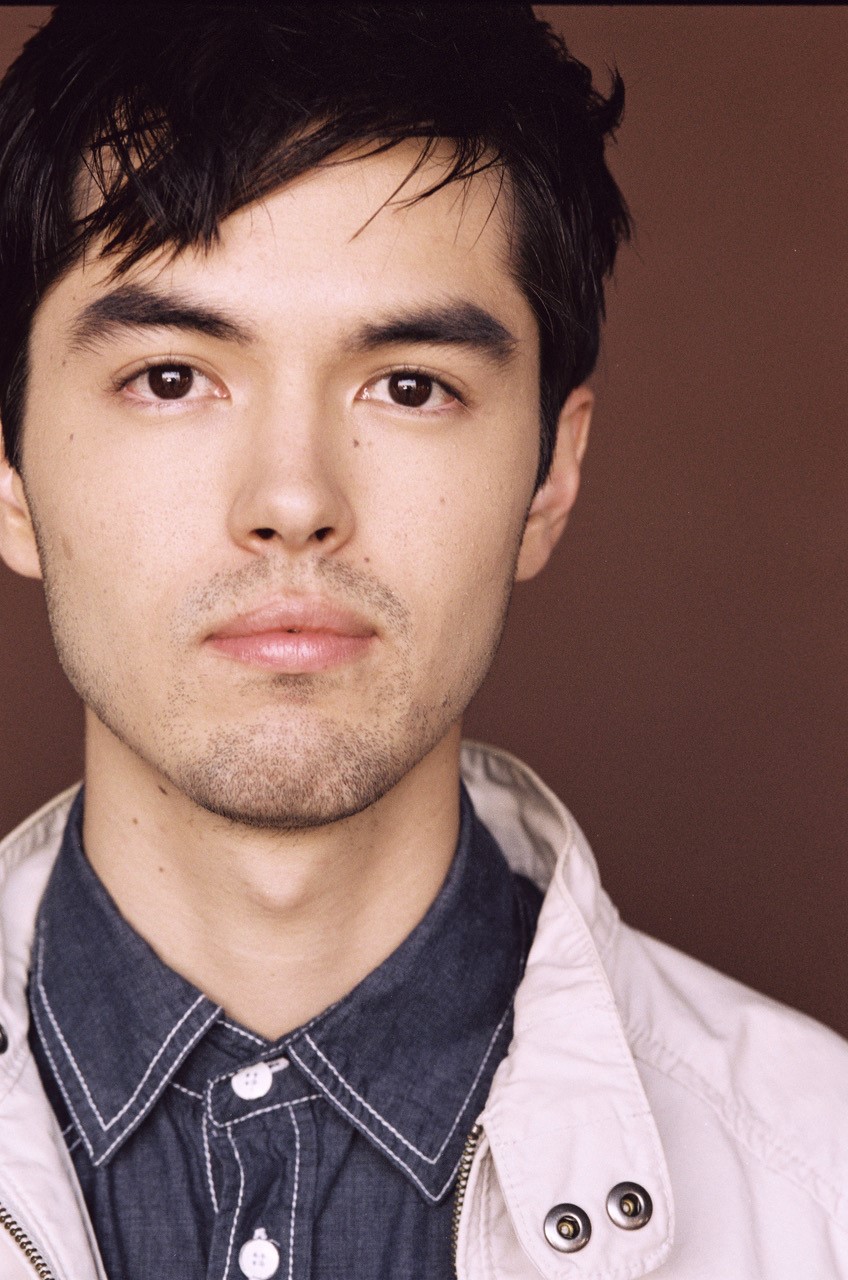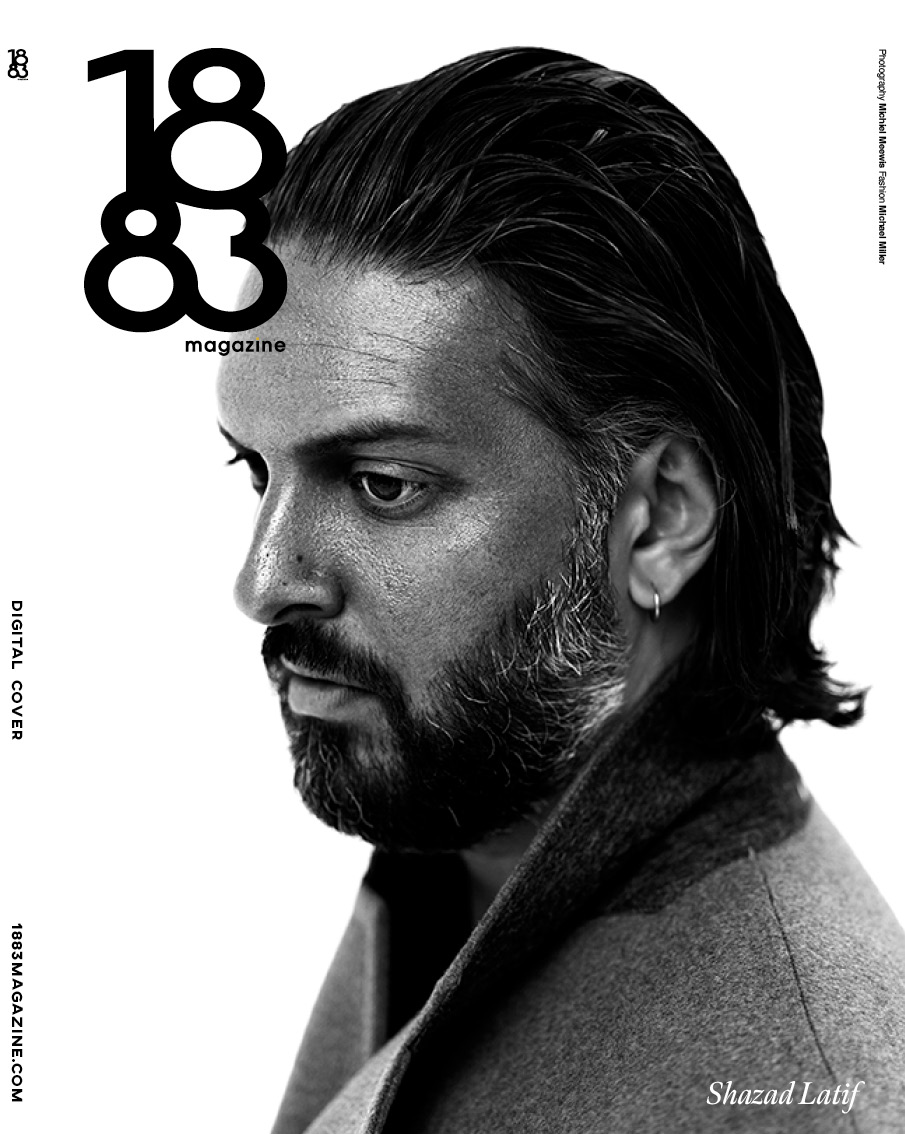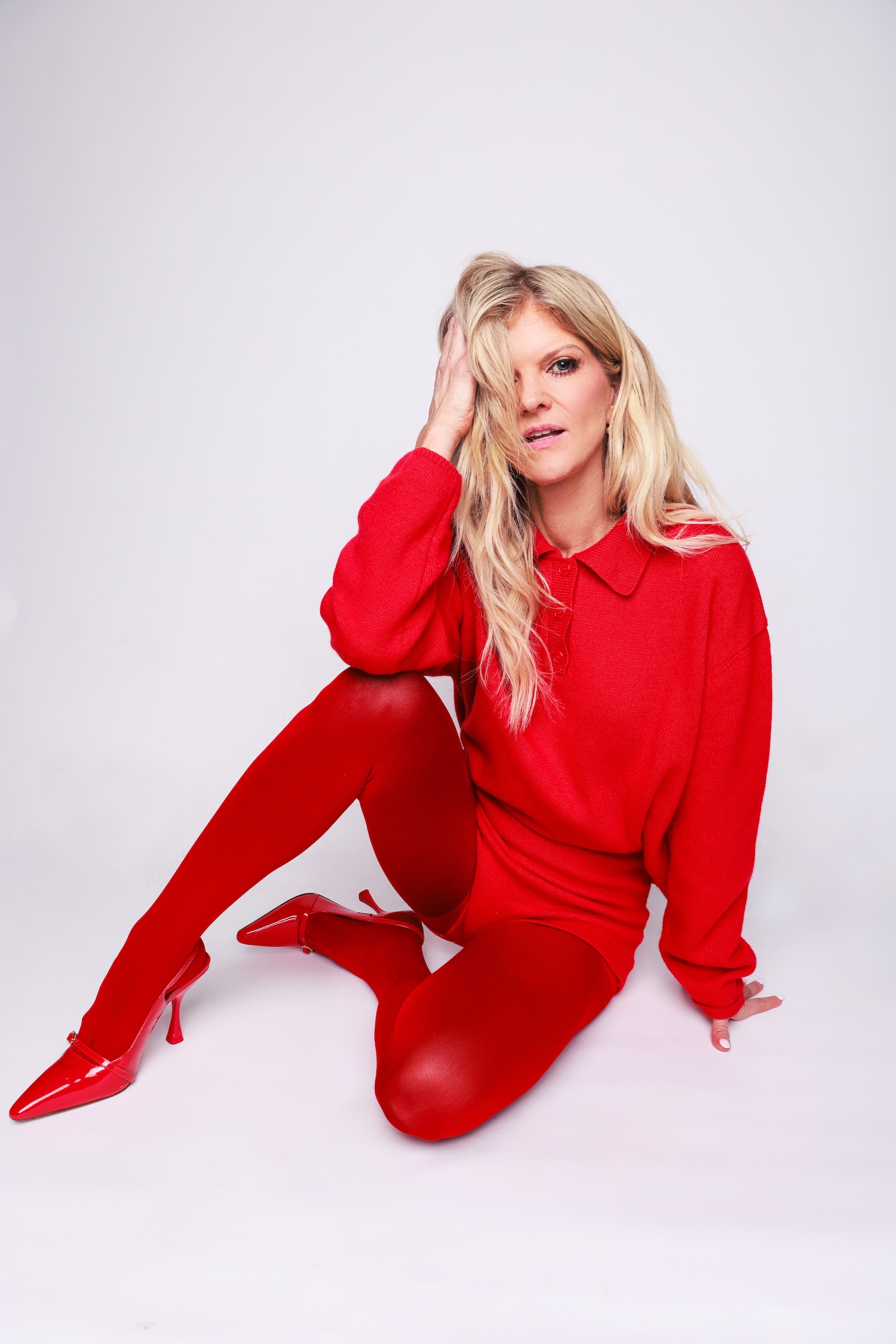Seamus McLean Ross may only be at the start of his career, but he’s already navigating the kind of whirlwind most young actors dream of. His breakout turn as Colum MacKenzie in Outlander: Blood of My Blood has introduced him to a global fan base, thrown him onto the stage at Comic-Con, and set him firmly in the spotlight with the comfort of a greenlit second season. For Ross, it’s been both exhilarating and humbling. “Things can change so fast,” he reflects. “So I’m just trying to enjoy this moment while I have it.”
On screen, Ross has already proven his range — from grounding the conflicted, emotionally guarded Colum opposite Sam Retford’s fiery Dougal, to stepping into the swagger and vulnerability of Gavin Bain in California Schemin’. Off-screen, he’s candid about the pressures of honouring history, handling nerves on his first major set, and learning from the people around him. Director James Napier Robertson, who cast him in California Schemin’, recalls calling him “a star” after their very first meeting — a sentiment Ross admits still feels surreal.
Now, with Blood of My Blood Season Two in production and his feature debut headed to TIFF, Ross is leaning into the work, the gratitude, and the growth that come with every new role. 1883 sits down with him to discuss Blood of My Blood, his acting process, and more.
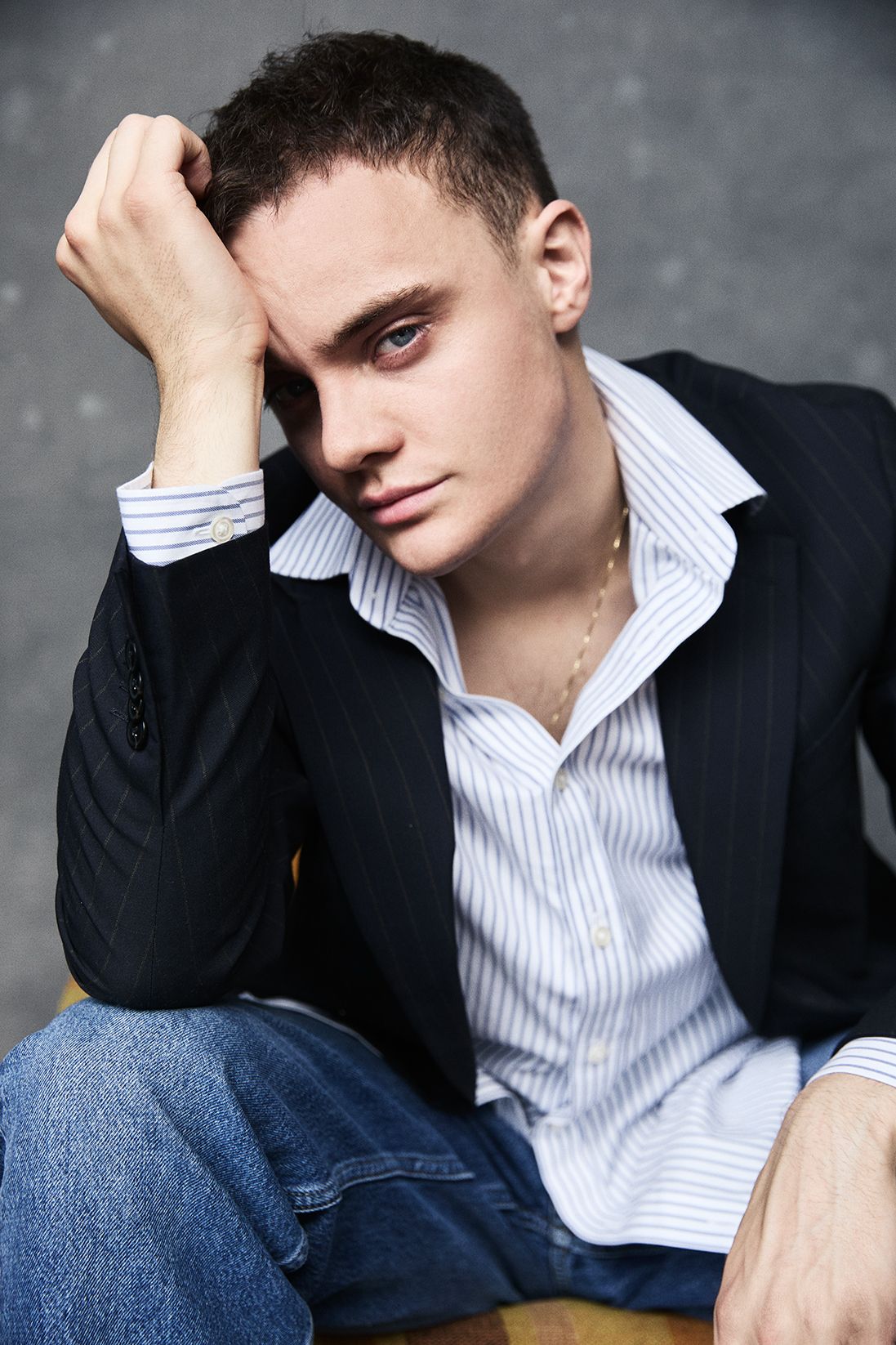
Seamus! I know you just got home from Comic Con. How was it?
Comic Con was probably my favourite. It was so surreal, kind of like having a taste of being famous, with security guards, autograph signings, and fans who were so welcoming and kind. It was a lot of fun, and, honestly, mental. We saw so many famous people too, so yeah, it was really cool.
I am intrigued since this is your first big project and you have that built-in fan base already… It must feel really cool, but also daunting at the same time.
Yeah, I think it’s quite unusual for us. I mean, all my mates are actors, and they’ll sign up for jobs that look really promising and great on paper. But it’s so hard for shows to actually get renewed and to build a fan base. There’s just such an oversaturation of work right now.
When I was out there, I met studio heads and people from Sony, and we talked about that issue. So, having this kind of parachute of fans already is such a head start. It’s great, but there’s also pressure—because these fans know the books, the stories, and even my character better than I do. So yeah, that’s the other side of it—the dichotomy.
When you think back to your childhood, was there a movie, show, or book that really inspired your imagination and made you want to get into this world of make-believe as an actor?
Yes, immediately, as you asked that, I had the images in my head already. Band of Brothers, the HBO show, definitely. My dad had the box set, and I remember being on holiday in Italy when I was about eight years old. I’d stay up until three in the morning watching it on TV, I was obsessed.
Embarrassingly, I think it made me want to be a soldier. I loved playing outside with my friends in the neighbourhood, pretending to be soldiers in the woods with sticks. When I saw that show, it looked like a more real, more accurate version of what we were doing. And I still love it — it’s such a powerful piece of work, and so many people know how good it is. It really moved me.
Later, I even met a Scottish actor who had a small part in it. He told me about the two-week boot camp the cast did, and how it felt almost like a method acting project — playing real people, living as Second World War soldiers alongside your mates. That idea of doing something that’s both fun and deeply meaningful— that’s the dream job. That show definitely resonated with me and made me want to be an actor.
Beyond the method-acting side of it, was it the ensemble that really intrigued you? It was quite a large set as well, right? Not filmed on green screens and everything?
Yeah, exactly. When people ask me about my favourite days filming Outlander, I always mention the days we shoot outside with a hundred extras. There’s just something about full immersion — the ability to completely escape. TV shows are so different from theatre. In theatre, you have to build everything in your imagination, but with a high-budget show, it’s like you really can go back in time. It’s the closest thing to time travel. That’s why I loved Band of Brothers so much; the camaraderie, the attention to detail, the scale of it all. It completely blew me away.
Yeah, larger than life for sure. Which Outlander is as well, in its own way. That must have been really cool, especially with the costumes and everything. How did things like the costumes and settings help inform your portrayal of him?
That’s a really good question. I think the first time you see the castle and the detail in it, you’re just blown away. There are sword markings on the stones; everything is so precise. They even used 3D image printing based on fabric from a preserved clansman from around 1750. So the level of artistic detail is unbelievable. When you have that kind of accuracy, it makes the job easier. The jackets, for example, have a real weight to them, and that changes how you move. In a period piece, people carried themselves differently. Like, if I’m playing my character, I wouldn’t move my hands as much as I would naturally. The costumes give you that physical reminder, it makes you feel more proper, more grounded in the 18th-century world.
Yeah, it’s almost like those tangible details you can’t really prep for ahead of time. Like, unless you wore a weighted blanket or something, you can only imagine it.
Exactly. I remember once I borrowed one of my dad’s tartan shirts, put the collar up, buttoned it all the way, just trying to get a feel for it. But when you actually step into those incredible costumes, it just transforms everything. It makes it so much easier.
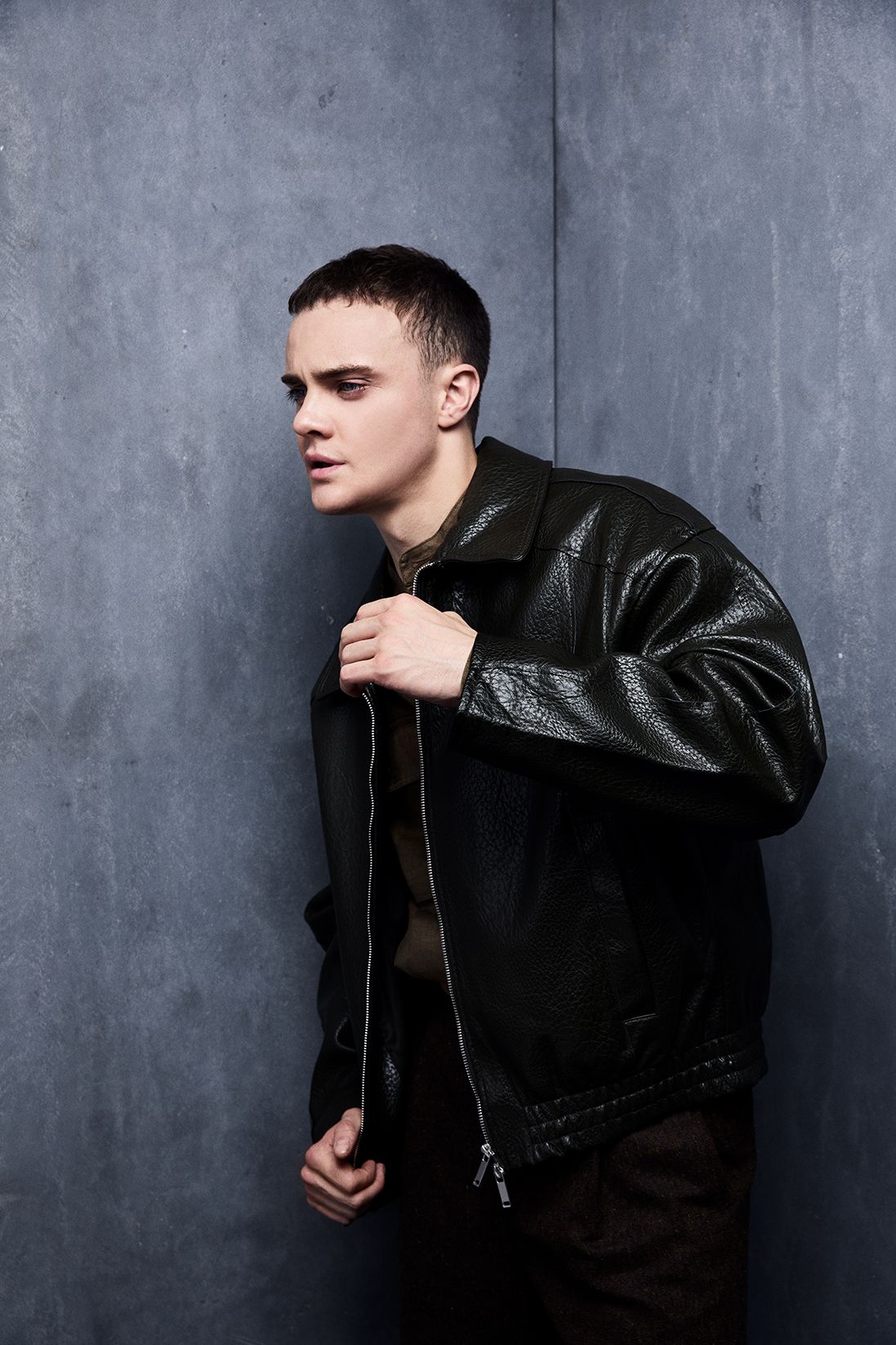
You studied at Guildhall School of Music & Drama in London. What was it about the school and program that made you want to get the foundations of acting, rather than just auditioning right away?
I think it was the only way I knew in. I remember a friend of mine wanted to be an actor and got into the Royal Conservatoire of Scotland. At first, I didn’t even know what drama school really was. I was in youth theatre, and we all wanted to be actors, but we didn’t really understand what that meant. So I mentioned it to my mum and we started looking at schools. I auditioned for the main ones: one in Scotland, a few in England, and one in Wales. That’s when I really began to take acting more seriously. I started thinking about Shakespeare, and I completely fell in love with it. I remember watching Coriolanus and going, “Yeah, this is a bit of me. I want to do this.”
I needed drama school because I was only 18 when I got in. Honestly, I was a bit of a mess as an actor. Drama school cleaned me up; it made me tidier, presentable, watchable. You can have raw instinct, which a lot of people do, but drama school gives you the craft, it makes you an actor. At Guildhall, we had an incredible teacher, Patsy Rodenburg, who worked at the RSC. Her teaching was all about breath; the idea that the script should affect you naturally, without forcing it. You should be so open and available that when you speak the words, they just come out of you, instead of you putting on some kind of interpretation. Acting is simple at its core, even if it feels hard when you’ve not done it for a while. For me, I definitely needed that training.
Yeah. And then theatre in itself is its own kind of school, I’d say. So I wanted to ask about that — about grinding your teeth on stage, and how that helped you transition into TV.
Funny enough, I actually had a book called “Transitioning from Theatre to Screen.” And I did read it, because the shift was tough. Theatre was all I knew; at drama school and then on stage, it was about being big and free, filling that proscenium arch. Suddenly on TV, the camera’s right here in your face. That felt scary, like less freedom. But it’s just a different craft.
What I loved about theatre was that it let me off the leash. The play I did was wild — it felt like going into the trenches every night. And then to step into a polished studio job right after — it was such a different challenge, but creatively brilliant. I’ve always said I’d love to go back and forth: do a play, then a TV show, then a film. I’ve been really lucky to have the chance to do that. It keeps you dexterous, nimble as an actor. You’ve got to be able to go as big and bold as possible, and then also as small and contained as possible. That’s how you push yourself.
I always find it interesting with theatre that every performance is different. The audience changes things — someone might laugh at a part they’re not supposed to, or react unexpectedly, and you take that in. Whereas on TV, maybe you get three or four takes of a scene, and then you move on. That must have been a big learning curve for you, too.
Yeah, definitely. It’s a big curve in film, especially, because once it’s edited, that’s it — you can’t change it. I remember James McAvoy talking about Clint Eastwood’s approach: he wants actors to nail the first take. A lot of people go in thinking, “Oh, we’ll find it along the way.” But no — you come in ready to deliver on take one. Especially on indie films, there isn’t the luxury of five or six takes. That’s amazing discipline, I think. You’ve got to be prepared—know your lines, come with one clear idea. That’s the base level you should always bring. Drama school helped instill that professionalism in me.
What was it like fleshing out Colum? Because obviously, you had the older version of him to reference, but how did you approach him at first?
When I was auditioning, I watched Gary’s performance in seasons one and two. Then I just read the scripts over and over. Sam Redford and I actually signed up for a free online course through Glasgow University on clans and wider Scottish society. That was really helpful, because it’s such a different world — I felt I needed to educate myself and really understand that culture.
Physically, I also practiced a lot of limping, which was harder than you’d think. Walking around on set, getting the block right — it’s easy to forget. Sometimes I’d run after Sam in a scene, and the director would stop me like, “Limp!” But mostly, it was about grounding myself in the scripts, doing my prep, and understanding what’s going on emotionally under the surface.
I’m intrigued by that course you mentioned, especially since you and Sam are playing on-screen brothers. That must have been fun to explore together. I love their relationship — there’s even that line where he says, “You use your head to solve the problem, I’ll use my blade.” It defines them perfectly. So tell me a little more about doing that course — did you guys have homework together or anything like that?
We did it separately from our own flats, but it was still great. Sam would always show up with these books, telling me about what he was reading — stuff about who was on the throne, the politics of the time, Scottish and English history, the two crowns coming together. It was fascinating. We’d chat about it in the green room before heading to horse-riding, like, “Oh yeah, the Hanoverians are doing this…” And it really seeped in. For me, a lot of my lines had to do with taxation between clans and intricate political details. Understanding that context was essential, knowing exactly what was going on with the clan. I’d write little backstories: why this had happened, why Colum felt a certain way. It was about joining the dots emotionally so that when you say a line, you know what’s going on underneath.
I didn’t even think about the historical accuracy, you also have to keep in mind. Between the fandom, the books, and all that detail, that must feel like a lot of pressure.
It was. I was really nervous — we all were. The first week of shooting was tumultuous. A lot was happening, things were moving fast, and suddenly it’s the biggest job of your life. Three cameras on you, and you’re thinking, Right, I’ve got to be a movie star now. You have to give it everything, back yourself fully. It’s scary, but it’s also great. You need to go through that at some point if you really want to make it.
Absolutely. Fleshing out your relationship with Sam’s character, with Dougal, what kind of rapport did you two build? Because I love the on-screen bickering, I think it’s great.
It’s great because they’re such different characters. Sam described it as Apollo and Dionysus — one wants total control, the other total chaos. That contrast creates such a brilliant dynamic in scenes. He’s such a different character to me in every way, so it naturally blends into this tornado of opposites. Off set, Sam’s a lot of fun. He’d wind me up in little ways, like during that balcony scene, he’d stand on my toes mid-take. Or before shooting, we’d push each other around just to get riled up and into the right energy. It was playful but really useful for the dynamic. He’s a lot, but he’s a great guy. I love him to bits.
And even just the height difference plays into that dynamic too. The physicality of it must really help you get into character.
Totally. I’m the older brother in the relationship, but he’s physically stronger. I don’t have older brothers myself, but I can imagine what that does to your sense of status. It’s like having a much younger brother who could still overpower you. That tension really shapes their relationship. And it’s fascinating, especially knowing where things go in the original show. What’s great about this series is that we get to see how the two of them came together as young men, how that alliance started to form.
So how would you describe Colum’s mindset at the start of the show? Because obviously we know where he ends up eventually, but where is he when Blood of My Blood begins?
I think he feels like he’s been kicked out of the house, in a way — more emotional than he lets on. His dad never believed in him, and he had a terrible relationship with him. All of his siblings have different ideas about where the clan should go, and none of them agree. So Colum feels isolated. What I connect with most is that he lives a lot in his head. He doesn’t talk to anyone, so things just build up and up. It’s like those imaginary arguments you have in the shower — he’s constantly playing out scenarios in his head, preparing for battles that haven’t even happened yet.
Yeah, he’s almost bracing for something without knowing when it’s going to happen — it’s bubbling under the surface.
Exactly. There’s a catastrophe brewing because nothing’s clear. The clan has so many possible paths, and Colum is locked into one, almost stubbornly. On top of that, he’s carrying this need to prove his father wrong, which adds fuel to it.
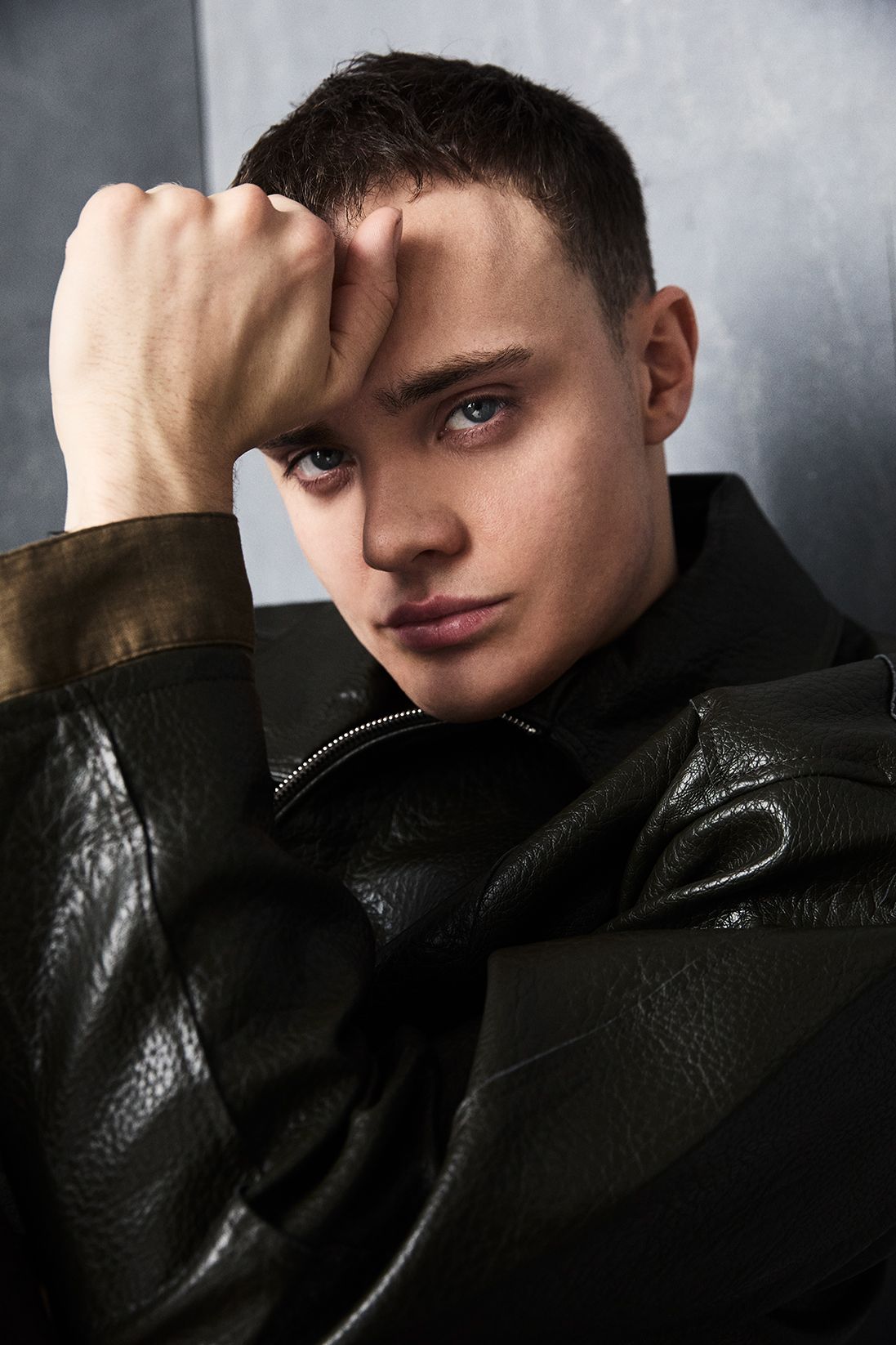
Knowing what you know about his arc over Season One, and now with Season Two on the way, what advice would you give him if you could?
Season Two is incredible — I honestly think it’s even better than Season One, which I didn’t think was possible. If I could give Colum advice, it would be to trust in other people’s strengths instead of fighting against them — especially when it comes to the people he loves. I think we all sometimes treat the people we love worse than strangers, almost pushing them away. But the real power is in maximizing the strengths of those around you and letting them run their course, rather than trying to control everything. And maybe I’d tell him to take up meditation or even yoga. Stretch those legs out a bit.
Doing press and events like Comic-Con — and knowing you were already greenlit for a second season — that’s pretty incredible. Especially as an actor on your first big project, since a lot of shows don’t even make it past Season One. How has that been for you?
Yeah, that’s exactly it. A lot of my friends sign onto projects that sound amazing on paper, but they never get renewed. So to have that comfort blanket of knowing we’re coming back and literally filming again tomorrow is such a blessing. I don’t take it for granted because this industry can be really tough, and I’m still young. Things can change quickly — you can feel on top of the world one minute and be back to zero the next. So for me it’s all about gratitude. I love this character, I love the people I’m working with, and I love these incredible stages we get to perform on. I just want to stay in that headspace of enjoying it while I have it, because I know it won’t always be like this.
I also want to talk to you about a very different project — James McAvoy’s directorial debut feature, California Schemin’, which is premiering at TIFF! I’m going this year, looking forward to seeing it. What was it like filming that project?
When I got the script, I thought, “This is too good to be true.” They sent me a documentary link beforehand, and I was immediately hooked. Sometimes a role just clicks with you — like with Colum, I felt I instinctively knew how to play him. With Gavin in California Schemin‘, I wasn’t sure I did, but that made it exciting. My hairs stood on end and I thought, I need to dive into this world. It was wild timing too. I started filming Blood of My Blood in January 2024, and just after wrapping Season One, I got the call that I’d been cast in California Schemin‘. We started filming two months later. It honestly felt unreal. I didn’t know what was happening, but I was here for it.
And working with someone like James, who I read once said he took one look at you and told you, “You’re a star.” That must have been surreal to hear.
James is unbelievable. He’s like a pro athlete of acting. I mean, I’ve done scenes with him where I’ll watch the monitor afterwards, and he just knows his frame so perfectly. He has this instinct for how to command a shot. That gave me so much confidence heading into Season Two — just learning by watching him. He grabs a scene by the back of the neck and runs with it. And beyond that, he’s incredibly focused — he can juggle a million creative plates at once, and he’s always locked in. He’s also been really fatherly toward me. Supportive, generous. Honestly, I get emotional even talking about it. He’s a hero to me. To have him in my corner is surreal.
So now, going back into Blood of My Blood Season Two with that experience behind you, does it change your approach? Do you feel like every project adds something new to your actor’s toolbox?
Oh, 100%. You grow with every job. Every actor says that, but it’s true. I remember Cate Blanchett saying she was terrified during one particular film, which is funny to hear from someone so established. The thing about acting is it’s not like you pick up a tool; you are the tool. So how you’re feeling emotionally, what’s going on in your life—that all affects the work. Right now I’m feeling good, and that comes from both acting experiences and life in general.
The more time you spend on set, the more confident you become. Screen acting is such a unique craft, completely different from anything else. So yes, every job adds to your confidence and sharpens your instincts.
Outlander: Blood of My Blood is airing now.
Interview Kelsey Barnes
Photography David Reiss
Styling Keeley Dawson
Grooming Joe Mills

